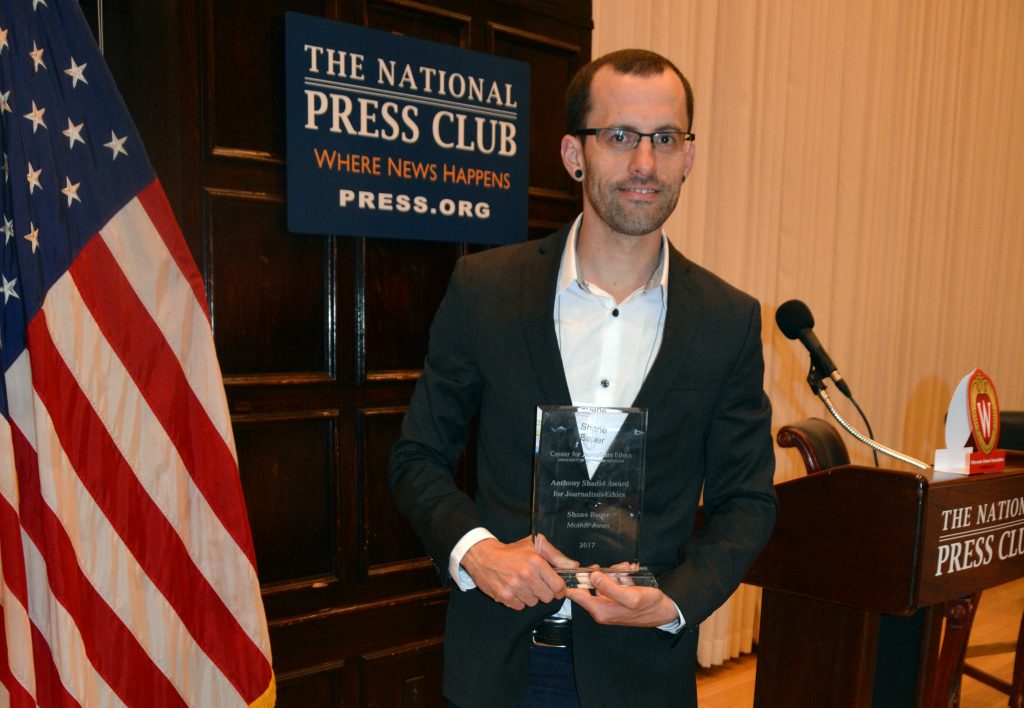
It was very important to me to be radically transparent with the reader, to tell the reader what my process was, how I went about the reporting and why I did the things that I did, so that they could judge for themselves.
Shane Bauer
When is Deceit Permissible?
Mother Jones reporter Shane Bauer compiled a six-part series investigating corporate run private prisons. After becoming a guard for a Louisiana private prison for four months, Bauer found cost cutting measures and institutional failings including rampant violence, understaffing and abuse of prisoners.
Public access laws that are meant to allow journalists access to the inner workings of state and federal prisons don’t apply to the private operations of these facilities, leading Bauer to fill a job as a guard for one of these private prisons.
Bauer made a number of personal guidelines to maintain journalistic integrity during his time as a guard: he would never lie to his coworkers or employers, he refused to spend time with coworkers outside of paid hours to maintain distance, and he strove to uphold a level of transparency despite never announcing to the prison staff that he also worked as a reporter.
Shane Bauer on His Reporting
Questions
Q1: Did Bauer deceive prison staff by not disclosing his work as a reporter or his intentions to publish his experiences?
Q2: Are “lies of omission” a meaningful concept in journalism? Can you think of scenarios where they could ethically compromise a journalist?
Q3: Is it permissible for a journalist to directly lie to a source for the purpose of a story?
